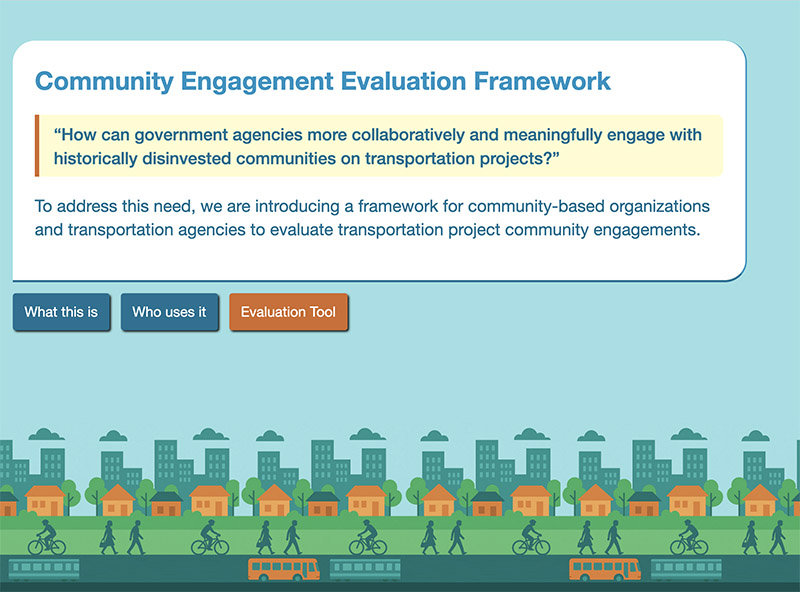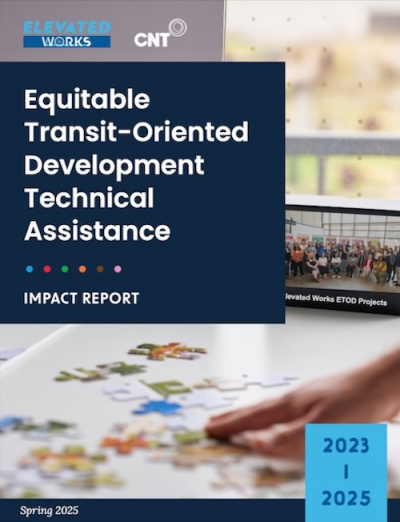The Cook County Board took an important first step in funding transit when it recently approved a one percent sales tax increase recently to shore up a growing pension deficit. This will bring to an end a longtime misallocation of motor fuel tax dollars in order to fund public transit and aging infrastructure.
The Center for Neighborhood Technology and our partners at the Active Transportation Alliance, leaders of the Transit Future campaign, met with Board President Toni Preckwinkle and Commissioners to prioritize transit as the county puts its pension problems behind and considers infrastructure funding in its long-range transportation plan – due out later this year. In addition, I testified at the Board meeting about moving our county forward with transit. We’d like to thank supporters who sent more than 1,500 letters to Commissioners about the need for transit support.
As a result of these efforts, President Preckwinkle spoke at the board meeting about her long history as a transit advocate and the need for the county to re-invest in its infrastructure, and several commissioners acknowledged the outpouring of support and the importance of the issue in our meetings.
While the Board’s vote is a step in the right direction, it’s also just a first step. Meeting our region’s long-term transit needs will take other revenue sources. We’ll continue working with the county’s board to create an additional dedicated revenue stream that will help the region leverage federal resources. To that end, we’ve updated our call to action to supporters as our focus shifts to the 2016 budget.
Investing in our county’s future while putting the pension problem to rest will benefit everyone in the long run.
Our transit system is antiquated and in disrepair. Repairing and expanding it will lower the cost of living. Our research has shown that Cook County households spend $19.23 Billion annually on local transportation. Reducing that amount by even 10 percent amounts to $1.92 Billion annually. Evanston and Schaumberg have almost identical population sizes, but Schaumberg residents spend almost $100 million more annually than people in Evanston, money that could be more productively spent on education, medical care, business startup, or enjoyment.
Lowering the cost of living would be one of the biggest returns on transit investment, but there are many others. Our other transportation infrastructure will work better for us when we reduce the number of cars using it, reducing vehicle wear and tear and potentially adding decades of life to existing roads, highways, and bridges. Finally, it will stimulate new investment in communities connected to the expanded transit system. Each of these alone could save billions of dollars.
Funding transit expansion isn’t an expense—it is an investment in the entire region with a continuing return. We must upgrade and extend our transit lines, build an Arterial Bus Rapid Transit system in suburban Cook County, and fund grade separations to eliminate driver delays. Our hub-and-spoke configuration is out of date and doesn't work for the region today. Our current transit map configuration doesn't connect suburban communities well to the city center, especially those villages with major regional job centers.
As the national economy rebounds, our hub-and-spoke system does not work for effectively connecting businesses with a highly qualified workforce. Large swaths of Cook County’s population and more than one-quarter of its jobs are stranded in transit deserts, a point felt keenly by local businesses. Many like Kraft Heinz are moving headquarters from the suburbs to downtown Chicago to attract the diverse young workforce they need.
Today, the Chicago region has the benefit of two terrific advocates for transit in Congress, Senator Dick Durbin and Representative Mike Quigley. Quigley serves on the Transportation, Housing and Urban Development, and Related Agencies appropriation committee and spoke at a recent Transit Future event about the need for local investment in attracting federal funding.
If Cook County Commissioners believe the county needs an improved economy, residents deserve better access to the region’s employment opportunities, transportation costs should be affordable to our residents, and getting from city to suburban employment centers is critical, then we must invest in the modern transit system our region deserves.





 Strengthening Transit Through Community Partnerships
Strengthening Transit Through Community Partnerships